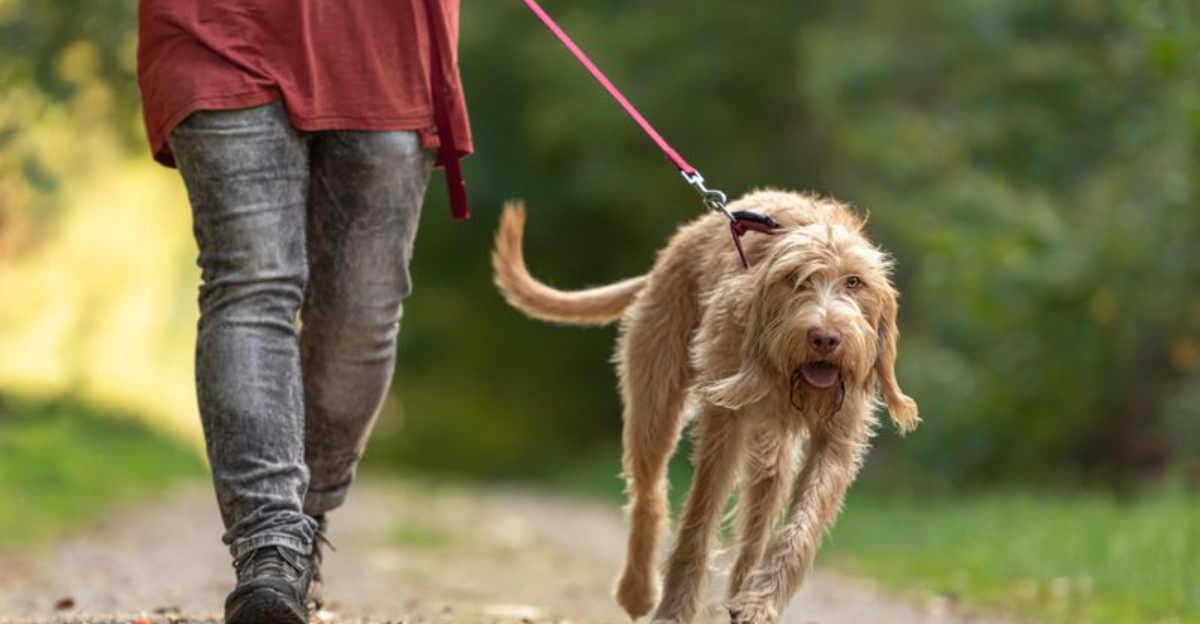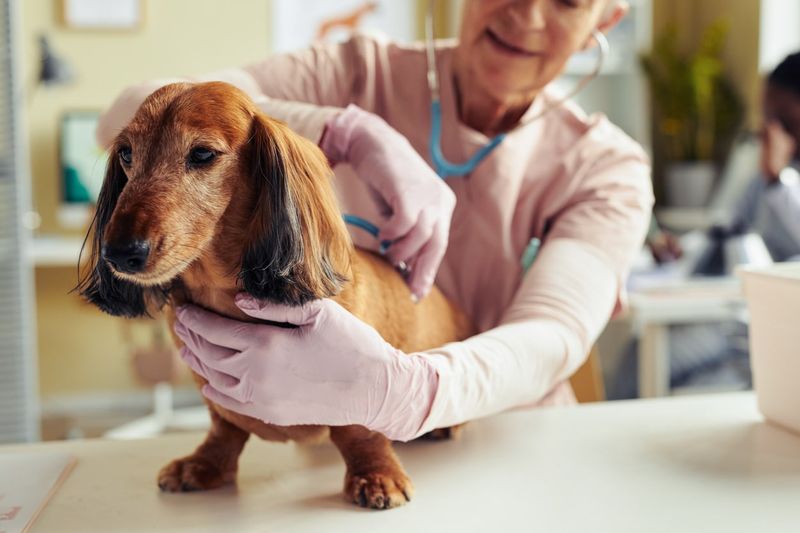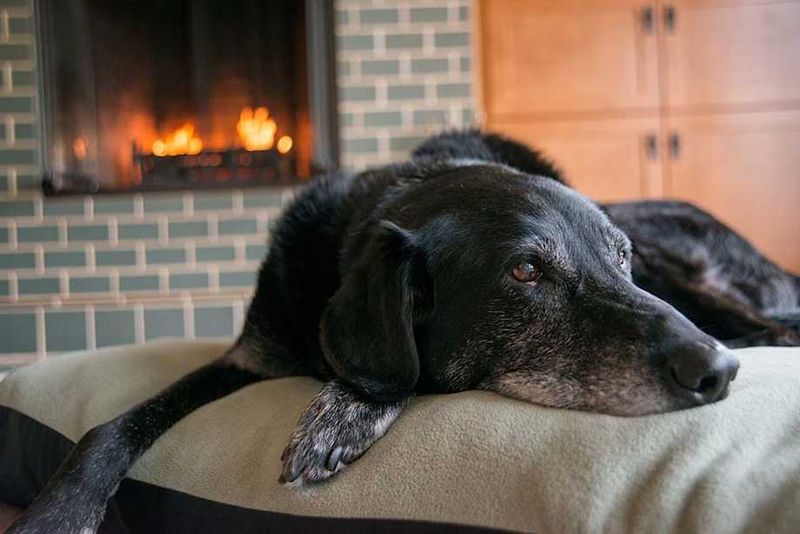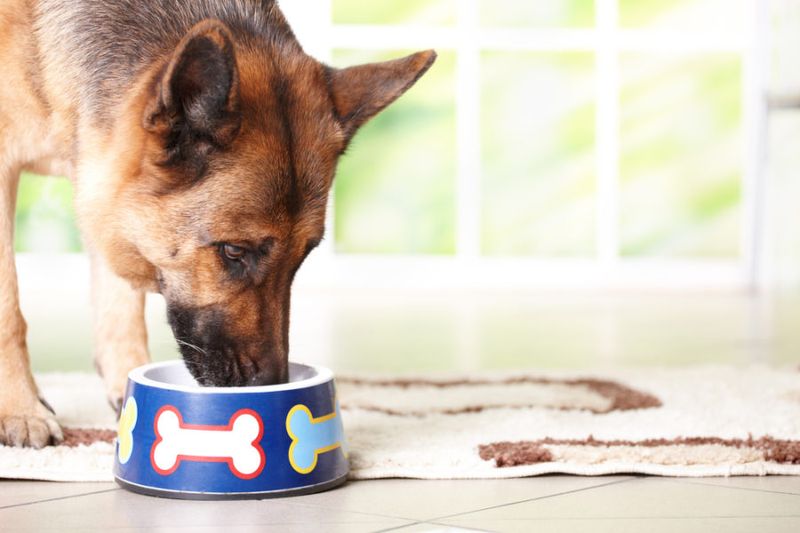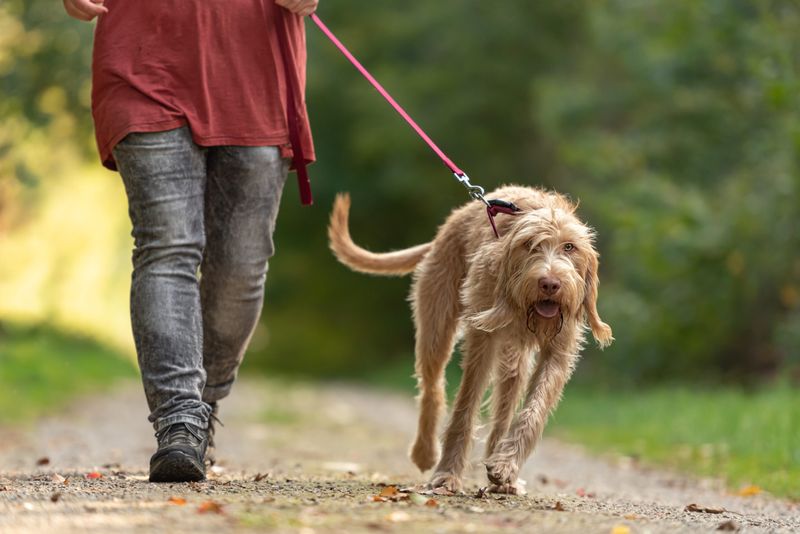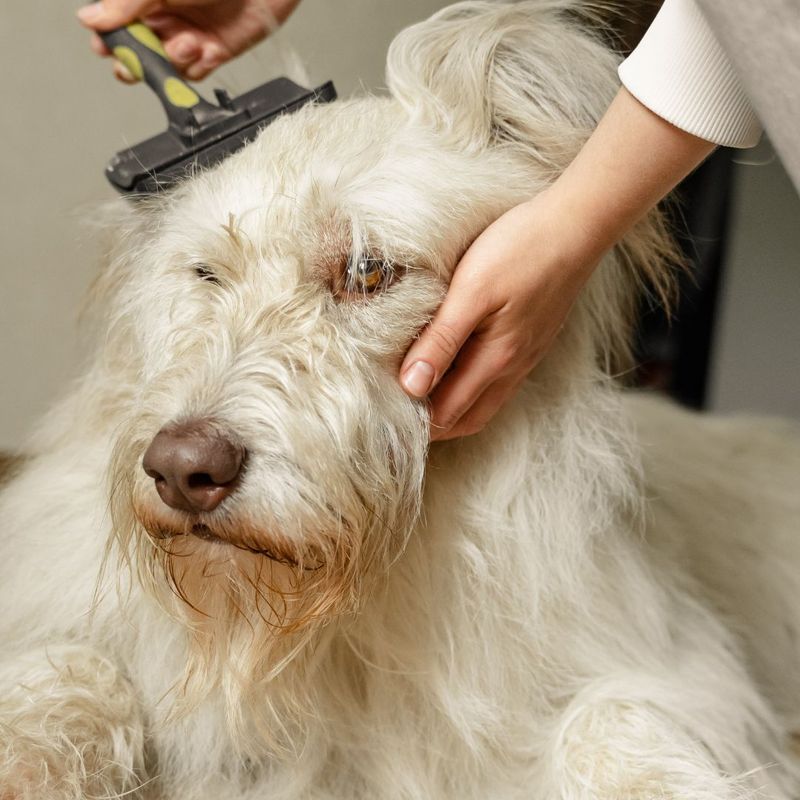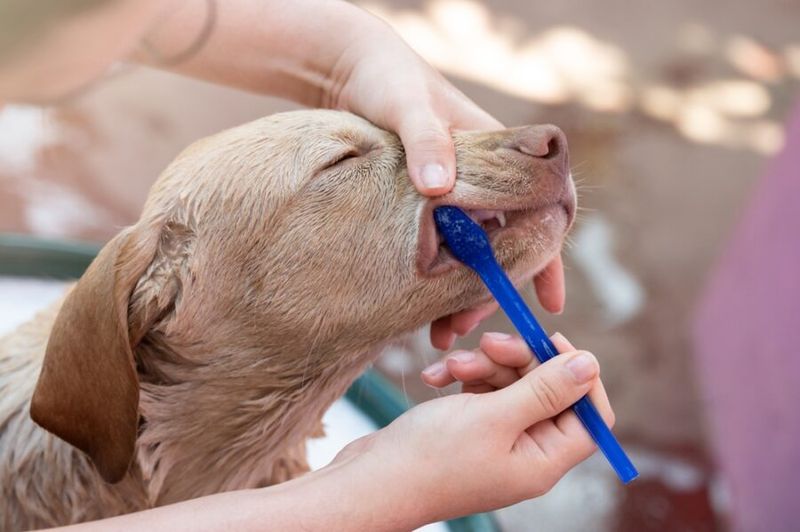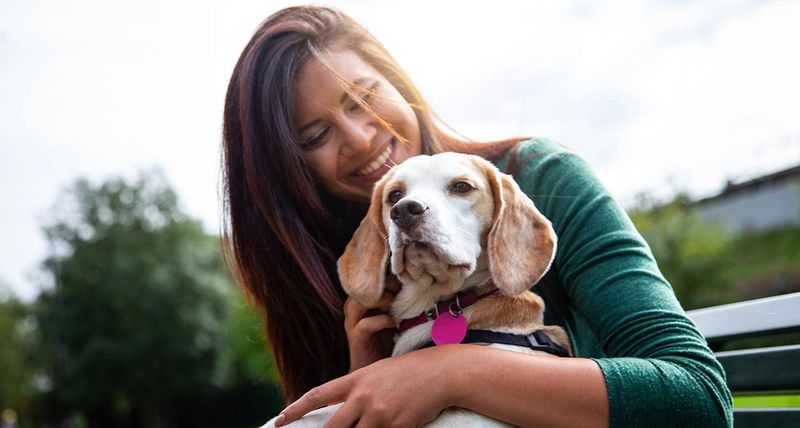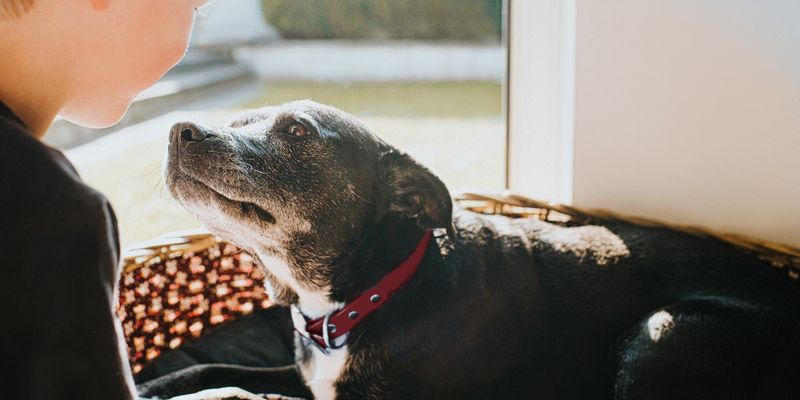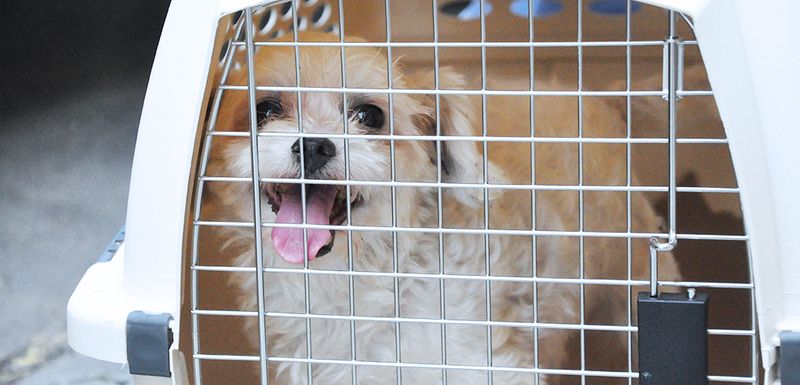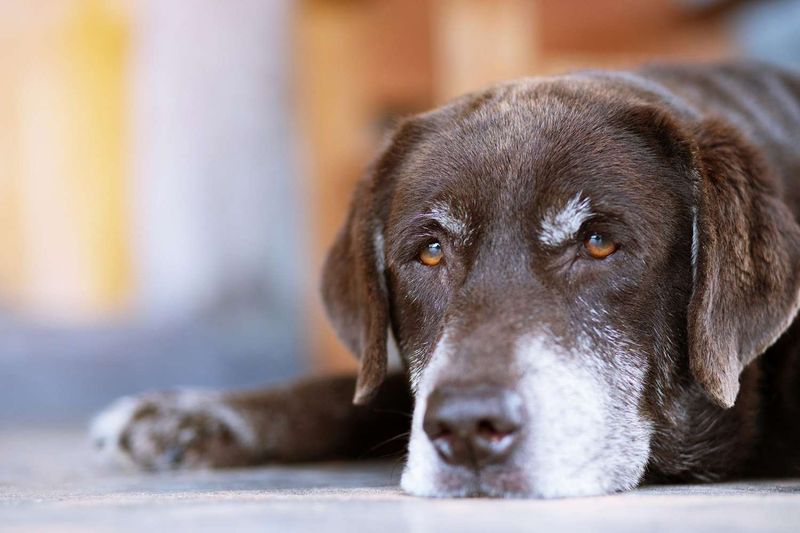Caring for a senior dog requires love, patience, and understanding as they enter their golden years. These loyal companions have given us years of joy, and now it’s our turn to return the favor. Here are 11 essential tips to ensure their final years are filled with comfort, happiness, and love.
Prioritize Veterinary Visits
Ensuring frequent vet check-ups is crucial for your senior dog. Regular examinations help catch health issues early and manage existing conditions effectively.
Preventive care, including vaccinations and dental cleanings, plays a vital role in prolonging their life. Your vet can tailor a health plan specific to your dog’s needs.
Consider discussing dietary changes, supplements, or medications to support their aging body. Attentive veterinary care fosters a better quality of life for your beloved pet.
Adapt Their Living Space
Adapting your home for an older dog can make a significant difference. Soft bedding supports their joints, while ramps prevent strain from jumping.
Ensure water and food bowls are easily accessible to minimize discomfort. Remove obstacles and use non-slip mats to prevent falls.
Creating a peaceful environment with minimal noise and calm lighting helps reduce anxiety, fostering a serene atmosphere. Tailoring their surroundings enhances their comfort and well-being.
Monitor Their Diet
Nutrition impacts every aspect of your senior dog’s health. A diet tailored to their age, weight, and health conditions is essential.
Look for foods rich in antioxidants, omega-3 fatty acids, and fiber to support immune function and digestion. Monitoring their calorie intake helps prevent obesity, which can strain joints.
Consult your vet for dietary recommendations, ensuring you’re meeting their specific nutritional needs. Proper nutrition is key to sustaining their vitality and happiness.
Keep Them Active
Regular exercise keeps your senior dog agile and healthy. While their stamina may decline, gentle activities like short walks or mild play sessions are beneficial.
Exercise helps maintain muscle tone, supports joint health, and prevents obesity. Tailor the activity level to match their abilities, avoiding overexertion.
Consider incorporating mental stimulation through interactive toys or puzzles, keeping their mind sharp. Physical and mental engagement enhances their overall well-being.
Groom Regularly
Grooming is more than just keeping your dog looking good; it’s essential for their health. Regular brushing prevents mats and stimulates circulation.
Bathing with gentle shampoos soothes their skin, while nail trimming ensures comfortable walking. Inspect ears and teeth routinely to avoid infections.
Grooming sessions offer a bonding opportunity, providing comfort and affection. A well-groomed dog feels pampered and loved.
Maintain Dental Health
Oral health is vital for a senior dog’s overall well-being. Dental issues can lead to pain and infections, affecting their quality of life.
Brushing their teeth regularly, along with dental treats, helps control plaque and tartar. Regular professional cleanings may be necessary.
Good dental care prevents more serious health problems, ensuring your pet’s comfort and longevity. Maintaining their smile keeps them happy and healthy.
Provide Plenty of Love and Attention
Senior dogs cherish companionship and affection. Spend quality time with them through cuddles, gentle play, or simply sitting together.
Respond to their signals, providing comfort when they’re anxious or unwell. Familiar routines offer security, making them feel loved.
Their loyalty deserves reciprocation, showering them with love enhances their happiness and strengthens your bond.
Watch for Behavioral Changes
Behavioral changes in senior dogs may signal health issues. Watch for signs like confusion, changes in sleeping patterns, or unusual aggression.
These may indicate cognitive decline or discomfort. Early detection allows timely intervention, improving their quality of life.
Consult your vet if you observe concerning changes, ensuring they’re addressed promptly. Understanding their behavior fosters empathy and care.
Ensure Comfort During Travel
Traveling with an older dog requires careful planning. Secure them with pet seats or harnesses to ensure safety.
Frequent breaks for stretching and hydration prevent discomfort during long journeys. Familiar blankets or toys create a sense of security.
Consider calming products to alleviate travel anxiety. Prioritizing their comfort makes traveling enjoyable and stress-free.
Consider Alternative Therapies
Alternative therapies can enrich a senior dog’s life. Options like hydrotherapy, acupuncture, or massage relieve pain and improve mobility.
These therapies are gentle, complementing traditional treatments. Consult with a vet to explore suitable options for your pet’s condition.
Holistic approaches offer additional comfort, supporting their physical and emotional health.
Plan for End-of-Life Care
End-of-life care is a compassionate decision, reflecting your love and respect. Discuss options like hospice care or humane euthanasia with your vet.
Create a peaceful environment, focusing on their comfort and dignity. Cherish the time left, celebrating the joy they’ve brought.
Honoring their life with care and empathy ensures their final days are filled with love.
